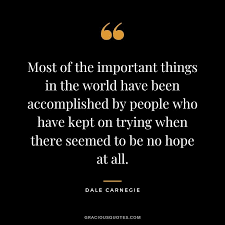Experiencing real hope
Last week we concluded our teaching, with the secret to experiencing “real hope” in our lives.
It is important that we are intentional in claiming what Christ has already obtained for us through His sacrificial death and powerful resurrection. We know that as believers in Christ we live continually in the presence of God who is the great I AM. It is God who provides us with what we need for the challenges we face (Isa. 43:2).
We recognize and acknowledge that God alone is the true source of our hope and salvation (Psa. 62:5-12).
Hope that is true
Ultimately, the question of what the world should places hope on is a complex one. There is no easy answer, and different people will have different beliefs.
We hope that technological advances will solve many of our problems, such as climate change, disease, and poverty. We also place our hope on human ingenuity, believing that humans have the ability to solve any problem they set their minds to. Those with gentler dispositions hold on to the hope that the world’s problems will be solved through love and compassion.
How does God’s hope compare with that which this world offers? Is God’s offer of hope better?
The cluster of attributes (of God) which we classify as “integrity” relates to the matter of truth. There are three dimensions of God’s truthfulness: (1) genuineness—being true—”He is what He appears to be” (Isa. 45:5-6); (2) veracity—telling the truth (1 John 5:20) — “He tells the truth” (John 17:17, 19); and (3) faithfulness— “He proves true” (Num. 23:19).[1]
As believers, our hope rests fully on the integrity of God—His genuineness, His veracity, and His faithfulness.
Hope that does not disappoint
Through Jesus sacrificial gift of life, we have a hope that “does not” and “will not” disappoint.
Therefore, having been justified by faith we have peace with God through our Lord Jesus Christ, through whom also we have access by faith into this grace in which we stand, and rejoice in hope of the glory of God. And not only that, but we also glory in tribulations, knowing that tribulation produces perseverance; and perseverance, character; and character, hope. Now hope does not disappoint, because the love of God has been poured out in our hearts by the Holy Spirit who was given to us. (Rom. 5:1-5)
The Holy Spirit reassures us of God’s love. This provides us with a steadfast foundation for hope. This love is unconditional and everlasting, providing security and assurance even in the face of trials and tribulations. (Heb. 6:17-19)
Hope kept alive
How do we keep hope alive? Not by might, nor by power, nor by strength (Zech. 4:6). Not by the wisdom of man nor the understanding of scholars (1 Cor. 1:27-29). These offerings of hope are temporary and subject to change—change brought about by the reality of time and the ultimate demise of life as we know it (2 Cor. 4:18).
But we keep hope alive through the Spirit of wisdom and revelation of the knowledge of God (Eph. 1:17). Armed with this we have access not only to life on this side of heaven but also throughout eternity. Through the love and grace of God, we can keep hope alive. May we forever rest and abound in the God of hope.
Therefore, gird up the loins of your mind, be sober, and rest your hope fully upon the grace that is to be brought to you at the revelation of Jesus Christ. (1 Pet. 1:13).
Now may the God of hope fill you with all joy and peace in believing, that you may abound in hope by the power of the Holy Spirit. (Rom. 15:13)
[1] Millard J. Erickson, Christian Theology.










